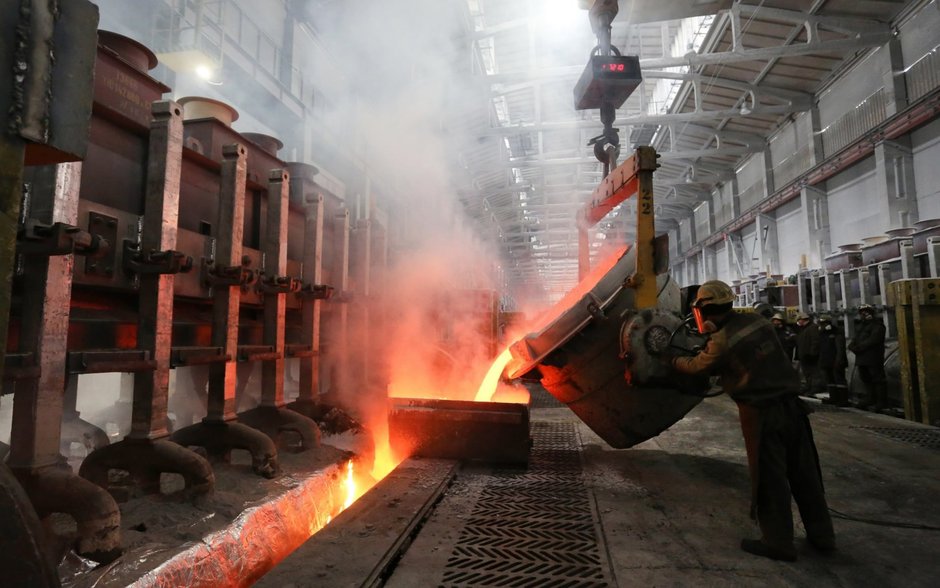Prices of oil and aluminium have soared on a rollercoaster day for commodities markets, feeling the shockwaves of US sanctions on Russia and America's burgeoning trade spat with China.
Crude oil touched highs not seen since Dec 2014 at more than $74.70 a barrel on Thursday, while aluminium on the London Metal Exchange climbed another 6pc to $2,337 a tonne.
The lightweight metal has risen 22pc since the start of the month to a seven-year high, after tough US sanctions on a string of Russian companies crippled the ability of major producer Rusal to trade its metal on the global market.
Tom Jones, chief executive of the UK Aluminium Federation, which represents 111 British firms, warned price rises of aluminium-made products were inevitable. "Manufacturers will try and spare those rises but eventually everything gets passed on to consumer," he said. "My members are concerned. Further downstream in the supply chain people will be affected and there will be a shortage of products."
As the ripple effects from the Trump administration's tough new stance spread wider, the price of alumina, the raw material used to make aluminium, also hit fresh all-time highs, with analysts noting increases of up to 45pc on the price being paid for shipments of the commodity. China has reportedly begun stockpiling alumina for export as it looks to cash in on the rally.
A Kremlin spokesman said Russia might consider nationalising Rusal, which is controlled by billionaire Oleg Deripaska, in a bid to save the company.
The impact of the sanctions on Rusal, which produces around 6pc of the world's aluminum, are beginning to spark alarm through the supply chain, causing headaches for producers of everything from drinks cans to car makers.
"There is no question that sanctions and tariffs make global trade more challenging," said Tyler Broda of RBC. "Smelters are likely to have difficulty obtaining enough alumina in the near-term to keep producing aluminium."
Credit ratings agency Moody’s has warned that higher metals prices will make life hard for smaller manufacturers. "[They will] not have the capacity to pass along raw material cost increases,” Moody’s said.
German trade association WirtschaftsVereinigung Metalle warned that US sanctions would have "severe consequences" for European industry.
Fears that the US could extend sanctions to Russian giant Norilsk Nickel also sent the price of nickel, used to make steel resistant to corrosion, soaring. Yesterday it jumped 10pc on the LME, the biggest one-day move since 2008. This morning metals broker Marex Spectron reported a 347pc jump in trading on the LME compared to the 20-day average.
Metals markets had already been rocked by US tariffs of 10pc on aluminium and 25pc on steel introduced earlier this year as President Donald Trump targets cheap imports from China to defend domestic industry.
Today Russia joined China and the EU in protesting against the tariffs, demanding compensation from the US at the World Trade Organisation.
Christine Lagarde, managing director of the International Monetary Fund, said the trade spat would erode global confidence. "When investors don't know under what terms they will be trading, they don't know how to organise their supply chains, then they are reluctant in investing,” she said in a speech in Washington DC.
Meanwhile energy ministers within the Organisation of Petroleum Exporting Countries (Opec) and their counterparts outside the cartel, including Russia, will meet in Saudi Arabia tomorrow to monitor the progress of their cuts to global oil production.
The bloc is nearing the end of its mission to drain the market of a chronic oversupply of crude but recent reports suggest that the Saudi Kingdom may be hoping to keep a tight rein on production to force prices to between $80 to $100 a barrel. Such a level would have been unthinkable just two years ago when oil plunged to below $40 a barrel.
Source: www.telegraph.co.uk
×


